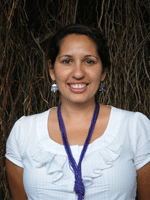Collaboration & Accountability
Amanda Worrall is a mental health nurse in the Northern Territory (Australia). This presentation tells the story of how June and Amanda found ways to use externalising conversations to name and speak about social paranoia (SP). It also describes the ways in which these conversations enabled June to reclaim her life from the effects of paranoia. This presentation was filmed at Dulwich Centre at the International Spring Festival of Narrative Practice that took place from September 21-23, 2011.
Narrative therapy and community work practices engage what has come to be called a ‘Decentred and Influential’ position from which we can work with people. In this extract, Michael White describes this therapeutic posture.
Michael White Workshop Notes
The Four Quadrants| De-Centered | Centered | |
|---|---|---|
| Influential | De-centered and influential (potentially invigorating of a therapist) | Centered and influential (potentially burdening of therapist) |
| Non-influential | De-centered and non-influential (potentially invalidating of therapist) | Centered and non-influential (potentially exhausting of therapist) |
In this paper by Sue Mann we examine ways of documenting that draw on collaborative practices, with particular reference to writing medical records.
‘Collaborative representation: Narrative ideas in practice’ | Sue Mann
The Just Therapy Team, from The Family Centre, Wellington, New Zealand, consists of Warihi Campbell, Kiwi Tamasese, Flora Tuhaka and Charles Waldegrave. Their highly respected work, which involves a strong commitment to addressing issues of culture, gender and socio-economic disadvantage, has come to be known as Just Therapy. These practitioners and their work significantly influenced narrative therapy and community work responses to accountability.
This presentation by Tileah Drahm-Butler aims to bring forth conversation on the ways that narrative therapy can be used as a decolonising practice, where Aboriginal and Torres Strait Islander knowledge and skill in resistance is honoured and talked about in a therapy setting.Tileah is a Social Worker in a hospital setting, currently working in Emergency Department and Intensive Care Units. She completed the Masters in Narrative Therapy and Community Work in 2014 and is passionate about finding ways to describe Narrative Therapy practices in ways that are culturally resonant to Aboriginal and Torres Strait Islander people. Furthermore, in the work that Tileah does, she continues to learn alongside the people who she meets to create and re-create narrative practices that are culturally resonate, and that are shaped by cultural and spiritual practices.
To view video, please click link below Decolonising Identity Stories | Tileah Drahm-Butler
For Reflection
In what ways have you entered into collaborations before? What made these collaborations possible? What might make it hard to enter into these practices? If these ways of working fit for you, what next steps could you take to build partnerships/collaborations in your work?
Please now join with others in reflecting on these questions and other wonderings below! Please include where you are writing from (City and Country). Thanks!